This code does not cause the "uncaught in promise" exception:
// Called from top level code;
// implicitly returns a Promise
testRejectCatch = async function() {
// Nested within testRejectCatch;
// simply rejects immediately
let testReject = function() {
return new Promise(function(resolve, reject) {
reject('test the reject');
)};
}
//***********************************************
// testRejectCatch entry.
//***********************************************
try {
await testReject(); // implicitly throws reject exception
catch(error) {
// somecode
}
//***********************************************
// top level code
//***********************************************
try{
testRejectCatch() // Promise implicitly returned,
.catch((error) => { // so we can catch
window.alert('Report error: ' + error);
// must not throw error;
});
}
catch(error) {
// some code
}
Explanation:
First, there's a terminology problem. The term "catch" is
used in two ways: in the try-catches, and in the Promises.
So, it's easy to get confused about a "throw"; is it throwing
to a try's catch or to a Promise's catch?
Answer: the reject in testReject is throwing to the Promise's
implicit catch, at await testReject; and then throwing on to
the .catch at testRejectCatch().
In this context, try-catch is irrelevant and ignored;
the throws have nothing to do with them.
The .catch at testRejectCatch satisfies the requirement
that the original throw must be caught somewhere,
so you do not suffer the "uncaught in Promise..." exception.
The takeaway: throws from Promises are throws to .catch,
not to try-catch; and must be dealt-with in some .catch
Edit:
In the above code, the reject propagates up through the .catches.
If you want, you can convert over to propagating up the try-catches.
At line 17, change the code to:
let bad = '';
await testReject().catch((error) => {bad = error});
if (bad) throw bad;
Now, you've switched over to the try-catch.
